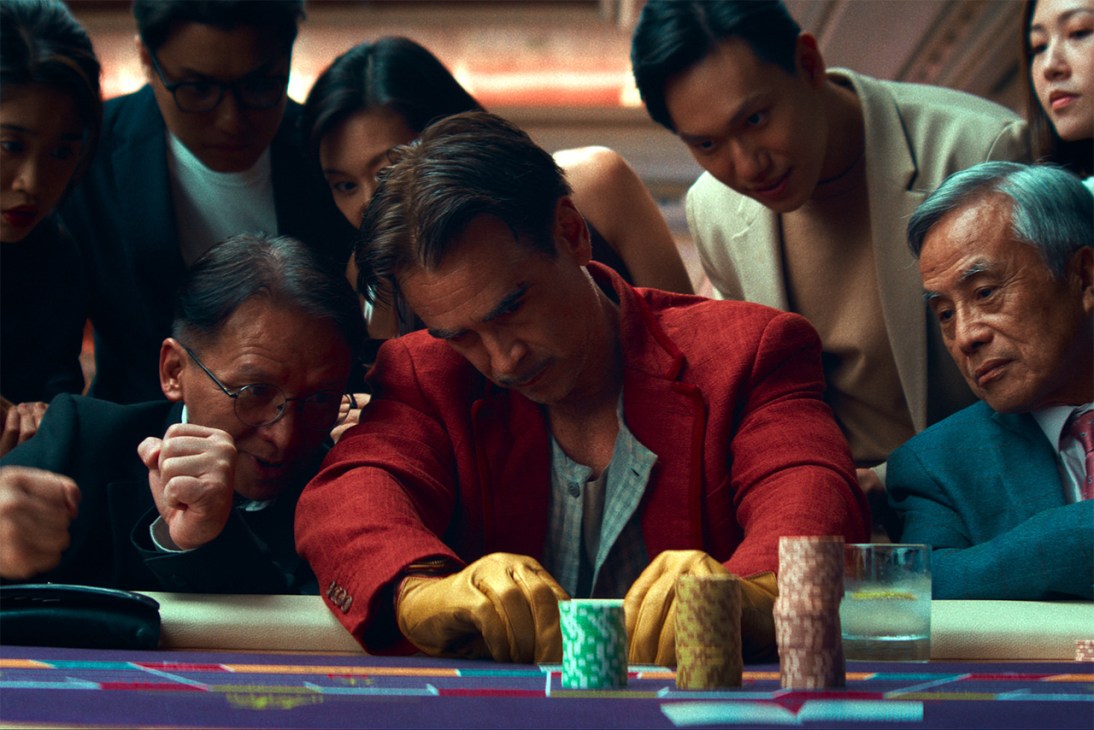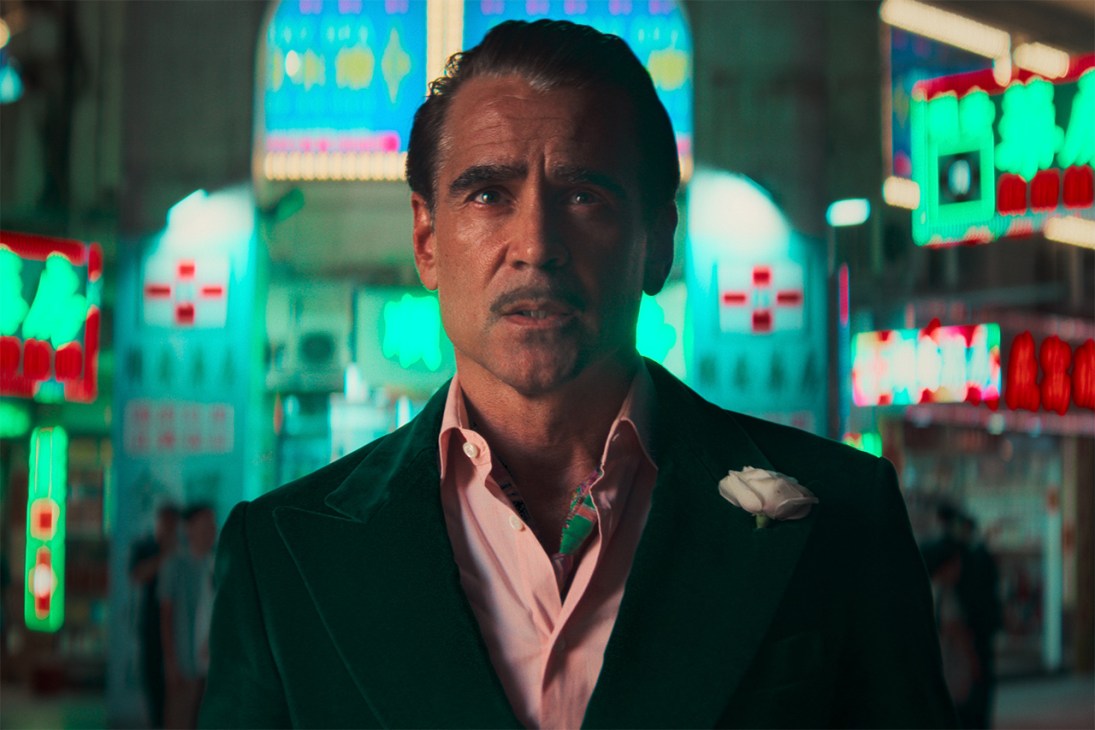Novelist Lawrence Osborne takes a gamble on Edward Berger’s ‘Ballad of a Small Player’
The Bangkok-based author reveals what it’s like to see his high-stakes tale reimagined for the big screen.
One of the hits of this year’s London Film Festival was Ballad of a Small Player, directed by Edward Berger and starring Colin Farrell as the raffish, mysterious Lord Doyle, a high-born high-roller on a losing streak in the casinos of Macau. The film is based on Lawrence Osborne’s novel of the same name and journeys through similar territory – places often explored by his other novels – of East Asian excess and allure, identity and imagination, the realm of the senses and good old high spirits and high dudgeon. Post-gala and pre-drinks, the Bangkok-based author spoke to Monocle about adaptation, autobiography and faking it to make it in the money pits of Macau.

Seeing a book that was published nearly 12 years ago on the biggest screen must be astonishing. How are you living with the film version of your novel?
It certainly feels like seeing episodes of my past come back to life. Reinvented and reimagined, of course, and made more operatic and grandiose. It took me back to myself and the Macau of 20 years ago. It’s always a strange moment for any writer. I had not seen the film in its entirety before the gala at the Royal Festival Hall, so it was very fresh to watch – a bold, feverish vision that certainly resonated with the period described in the novel.
How do you feel when your book gets chosen to be adapted into a film? Elation or ‘here we go again’?
I am more curious than anything, as well as anxious that the directors are talented and committed. So far, I’ve been lucky. Each director has their own vision of a story – and so they should. [John Michael McDonagh directed Osborne’s The Forgiven (2021), starring Ralph Fiennes and Jessica Chastain, and other titles are now in production.] What I am expecting or wanting is not very relevant.
This is Edward Berger’s second adaptation of a novel after Conclave. What are your notes when production starts? Are there elements that you want to ensure stay true to the story and character?
They anticipated what I might have wanted and screenwriter Rowan Joffé was very faithful to the book, by and large. I had some Zoom calls with Edward Berger as the project was being set up and thereafter I wasn’t involved. Sometimes it’s better that way.
As much as I loved the film’s energy, I missed your novel’s suggestive, smoky romance. Where did that come from in the book? It’s very powerful in the written word.
Yes, there are things that the written word can do and my own love affairs come to the surface in a very different way. The novel originally began with the story of Dao Ming [who becomes involved with Lord Doyle after they meet in a casino]. I had spent a night in a monastery near Sando in Sichuan during a gruelling roadtrip across China and the monks there told me that girls in that remote Tibetan village often disappeared to Macau and Hong Kong and were never seen again. This idea haunted me and was the initial stirring of the novel – the tale of a migrant girl who disappears.

Tell us about Lord Doyle, played by a wonderful Colin Farrell. Is the Lord any relation to the gentleman novelist?
Well, it’s a first-person book, so Doyle, c’est moi, yes. Even the velvet jackets. Of course, I never met a ghost but I came to believe in them.
How’s Macau for a weekend these days?
Rather fun, I must say. It has changed a lot but the old louche atmosphere still pervades. Plus, Lord Stow’s egg tarts remain – the bakery’s founder inspired the name of “Lord Doyle” and was, in reality, a guy from Ilford in Essex who made good out East.
There are many spirits in ‘Ballad of a Small Player’. How do they trick, tickle or sustain your characters?
I wrote it as a fable about money and the supernatural. Because money in our minds is supernatural in some ways. It acts irrationally inside us. This was more important to me than the subject of addiction per se. The whole story is a ghost tale.


